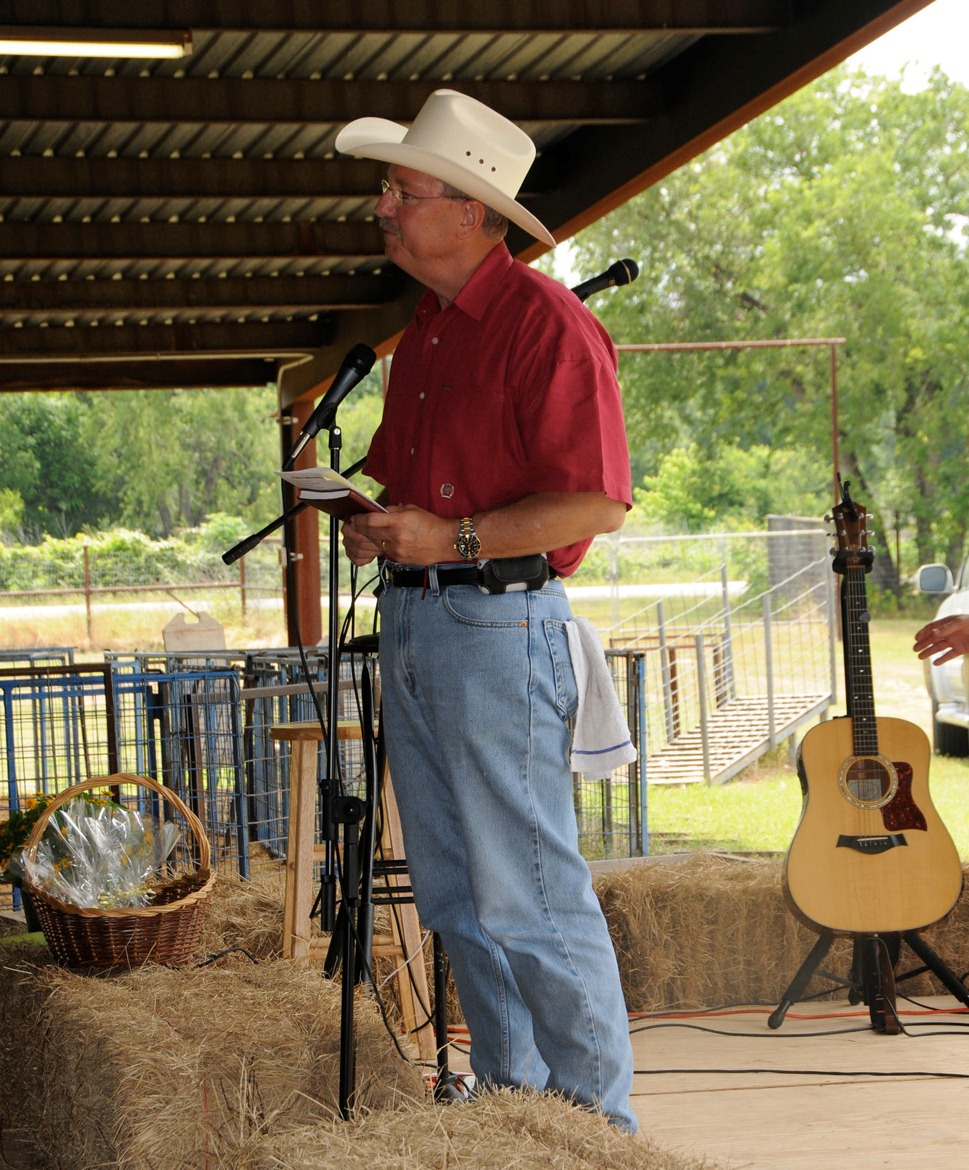By Jeff Brumley
As the pastor of Lost Pines Cowboy Church in Elgin, Texas, Greg Long pulls the usual pastoral and preaching responsibilities as ministers in traditional churches. But visiting his flock begins to take on a literal meaning sometimes.
“A lot of my time is spent going to sale barns and cattle auctions,” Long said.
 That’s because many of his church members live and work in those and other rustic settings, he said, and it takes an unusual approach to meet the spiritual needs of this unusual population.
That’s because many of his church members live and work in those and other rustic settings, he said, and it takes an unusual approach to meet the spiritual needs of this unusual population.
“Most traditional churches are not places where people from this lifestyle are very comfortable,” Long said. “They are boots and jeans kind of folks, not suits and ties.”
ABPnews spoke with Long about the other features that make the cowboy church – now a movement more than two decades old – different from other churches.
Have you always been a cowboy pastor?
I grew up in a cowboy and ranching culture then left that lifestyle and went to school and became a pastor … of traditional churches. I became a cowboy pastor when this church was launched. God opened that door in 2009.
Do real-live cowboys worship at your church?
We have four or five kinds of members. Some are working ranch cowboy folks, and we have some who are not ranch workers but love cowboy activities and rodeos. Some are professional team ropers, barrel ropers. And we have folks who are just horse lovers and ride horses for pleasure. And we have some who don’t have any affiliation with rodeo activities but love western heritage culture.
Do the actual cowboys and rodeo riders face unique spiritual or pastoral challenges?
Their work is very consuming and demanding … and having a regular time to say ‘I’m going to be in church at 11 o’clock on Sunday’ is not always easy. And they tend to be people who live and work in isolation. One of the great needs for them is to find and have a community where they feel comfortable.
What are some of the ways you try to do that?
We worship in an open barn. Many cowboy churches begin in auction barns and show barns. … We do country and western music, and bluegrass, with Christian lyrics. Also we don’t take up an offering. We have a milk jug that sits in the back and people can give there. And we don’t do altar calls. We have a green card and say if you would like to know more, give us your information on the green card and we’ll come visit you.
What about baptisms?
We baptize them in church. We use a horse trough as a baptismal.
Do you also host trail rides and rodeo events?
We’ll have trail rides and in the middle of that ride we’ll have Bible study and prayer time. That gives them comfort and lowers the barriers to hearing the gospel. We will have team roping events and hold our worship services before those events.
Do you ever feel that cowboy pastors and churches aren’t taken seriously by other Christians?
If that’s there, no one ever speaks it to me. But it is different, and I guess there can be a sense that people look at us and say “are they really a church?” And “are they going to make it?” Then three years later our size has grown and they see we have made a positive contribution to the community.
How did your church get connected with CBF?
They are very mission-minded and this is a huge mission area, so we partnered with them. They have been incredibly supportive and responsive.
Do issues such as women’s and gay ordination surface in your church and in other cowboy churches?
We don’t tend to get into those issues because of our structure. … We use a congregational model for our ministry and so leadership is very different. The pastor doesn’t make all the decisions… and we don’t have a board of deacons. We have lay leaders, and women are involved in the very soul of our ministry. That way we keep from getting into those kinds of challenges.
And do you own a horse?
Do I own a horse?
Yes, sir. Do you ride?
Yes. I have a roping horse who’s name is Jake. My wife’s horse is named Buddy.
Is it pretty much a given that the pastor of a cowboy church must ride horses and rope cattle and such?
I don’t know that it’s a requirement. But you have to be culturally relevant. If you don’t have knowledge and experience in the area of cowboy culture – which is horses, cattle, ranching – being culturally relevant is really hard.
Have you ever preached from horseback?
I have not preached from horseback – yet. I have, in one of our arena events, actually taught a Bible study from horseback.
